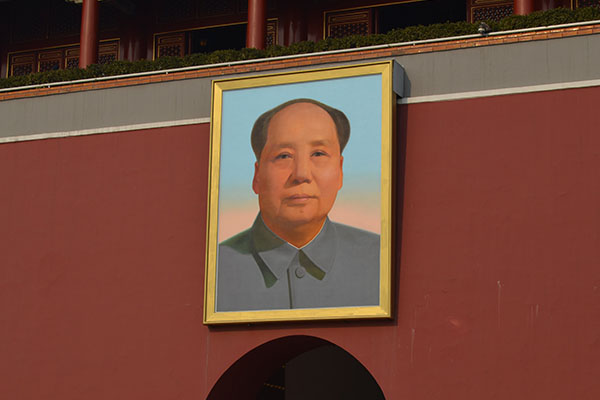In Heart of Darkness, Conrad shows a conflicted critique of western civilization. On the surface, the novel tells the story of clashing cultures between modern and primitive civilizations. The core of the story, however, is to target the disease of the western civilization, although no solution is proposed by the author. As Marlow first set foot on the land of Africa, he noticed the harmonious relationship between the natives and the environment. “They shouted, sang; their bodies streamed with perspiration; they had faces like grotesque masks—these chaps; but they had bone, muscle, a wild vitality, an intense energy of movement, that was as natural and true as the surf along their coast. They wanted no excuse for being there. They were a great comfort to look at (Conrad 24).” In comparison, the white men were like the inharmonious elements in the picture. While the black people who lived in the African jungles were considered savages, it was the “civilized” white people who were spreading hatred and plotting among themselves.
In the face of Africa, the European civilization becomes deformed. Being half British and half French, a painter, poet, musician and elocutionist, Kurtz is the most representative character of western civilization in the novel. However, Kurtz degenerated to a real savage and unethical person in the African jungles. While the colonist worshipped the western civilization, they overlooked the ethical values as a human being. if the development of civilization only serves evil purposes, such a civilization is no different from darkness. The example of Kurtz perfectly demonstrates the belief of Conrad, that the western civilization is not sustainable. Although laws and ethics are only temporary measures to bind one’s action, and are quick to lose their power as one enters a different environment.
When describing the black mistress of Kurtz, the author shows full respect for the brave woman who is full of life, “like the wilderness itself (Conrad 127).” In comparison, Conrad shows more sorrow and compassion for the white woman, Kurtz’s fiancée: “The room seemed to have grown darker, as if all the sad light of the cloudy evening had taken refuge on her forehead (Conrad 155).” The difference between the two women also proves Conrad’s point: being savage is natural and full of power, yet civilization is pale, artificial and hypocritical.
In Cesaire’s book Discourse on Colonialism, the origin and consequences of colonialism are analyzed. While western civilization has been promoted by some as the peak of human civilization, it fails to justify two problems according to Cesaire, the proletariat and the colonialism (Cesaire 31). Neither reason nor conscience would help solve the two problems, which proves one intrinsic nature of the western civilization: hypocrisy. Christianity has become the representation of the western hypocrisy, as European colonizers pray to God as they slaughter in the colonies all over the world. Instead of bringing “salvation” to the “inferior” civilizations, colonialism only proved how ugly western civilization can become.
Colonialism has unleashed the normally hidden dark sides of the humanity and maximized them. Brutality, violence and racial hatred became the most effective in the process of de-civilization (Cesaire 35). Despite the large scale of brutality in the colonies overseas, there were rarely voices of objections raised in Europe. Instead, people seem to make peace with themselves as they belonged to the superior western civilization. While the Europeans turned a blinded eye on things that happened overseas, the Jews in Europe was undergoing the same brutality during WWII. There is little difference between Nazism and colonialism in terms of brutality. However, the hypocrisy and selfishness of the western culture had blinded people from viewing the two equally. A filtering system is established with distorted ethical values (Cesaire 52). For the colonizers, other races were reduced to animals, so that their conscience could be eased (Cesaire 41). The barbarism demonstrated in the colonization processes show that western civilization fails to get rid of the cruelty and corruption sides in the human nature, in the case of colonialism, it even makes the problem worse.
The wars in Europe, as analyzed by Reed, were originated from the conflict of interest among different traders. As the new comer in the market place, German was trying to seize as much profit as it could, only to find France and Britain holding on to their previous profits without compromise. German had to depend on force for the expansion of trade. While German traders were not satisfied with its gains, the French and Britain traders wanted all of the markets, including the colonies all over the world, which made the clash of traders inevitable (Reed 74). While the rest of France was trying to defend itself, the heart and soul of the country, Paris, remained “tranquil, ignorant and apathetic (Reed 81).”
The western civilization has cultivated the nature of people to be selfish and indifferent. The Red Cross was used as a cover by proprietors in Paris. However, when all dangers have passed, they withdrew immediately from the Red Cross. While wars during WWI caused tremendous amounts of damage in the European countries, many of the soldiers didn’t even know what they were fighting for (Reed 84). The ruling class had installed blind patriotism and hatred in the soldiers. While the promotion of freedom has always been the major beliefs of western civilization, it was ironically used to justify wars that could have been avoided. During extraordinary times, the western civilization presented the common people with two choices, either being robbed of or being killed and robbed of. The Jews in Russia had to pay for the paper medallions in order to survive in the country (Reed 156). Again, the brutal side of western civilization was revealed by war.
While the three authors took different approaches to analyze the western civilization, the hypocrisy and instability of western civilization is mentioned by all of them. Conrad uses the comparison between western and African civilizations with the representation of specific figures from both sides. Through the comparison, the western civilization is found to be pale and distorted once it leaves the European continent. Cesaire uses a more direct approach and attacked the hypocrisy of western civilization through the brutality of colonialism. While many Europeans treat colonization as the spread of superior civilization into different parts of the world, countries, civilizations and nationalities were destroyed in the process. Men were tortured, killed and enslaved by the strangers from a strange continent, yet most of the “civilized” people automatically hid themselves into a filtered reality, refusing to confront with the brutality committed all over the world. Cesaire makes the harshest claims out of the three authors, revealing directly the fake humanism of western civilization and the limitedness of the western ethics.
Reed’s critique of western civilization, in comparison, is the subtlest among the three. The origin of the WWI, as well as the behaviors of different people during it were presented to the readers in a narrative tone, leaving the readers to judge for themselves the hypocrisy of the western civilization as an entirety. However, since most of the narratives are built on personal experiences, not facts on a more general scale, the effectiveness of the critique is diminished. Overall, it is the novel of Conrad that truly captures the essence of the problem with western civilization. The claims are also cleverly made with explicit yet precise metaphors. A conflicted view of different civilizations is adopted by Conrad. Despite his critique of the western civilization, he still believes that humans should not stop pursuing for more advanced civilizations. While colonialism has demonstrated the ugly side of western civilization, Conrad believes that western civilization should evolve accordingly, and it is still hopeful for people to learn from history and think about where the future of western civilization lies.








Leave A Comment